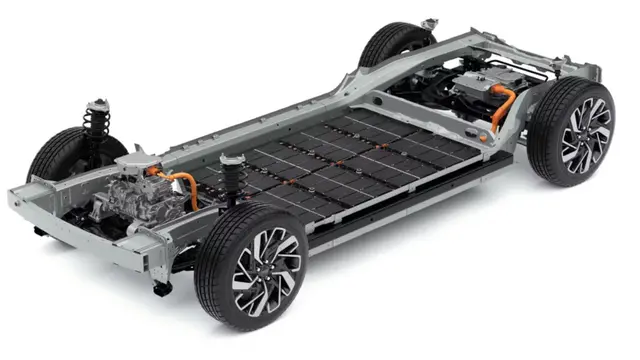Hyundai is taking bold steps to reduce its reliance on Chinese battery manufacturers and solidify its position in the electric vehicle (EV) market.
With a planned investment of $7.3 billion over the next decade, the Korean automaker aims to develop ultra-high-capacity lithium iron phosphate (LFP) batteries for its new EV models.

Currently, China’s CATL and BYD dominate the global battery market, controlling over 50% as of August 2024.
Hyundai’s move to focus on an energy density target of 300 Wh/kg could surpass these leaders, who are currently achieving around 200 Wh/kg.
This would position Hyundai to set a new industry standard by 2025.
The automaker’s ambitious project involves collaboration with local companies like LG Energy Solution, Samsung SDI, and SK On.
These partnerships focus on maximizing battery cell capacity and achieving a significant increase in energy density.
Hyundai’s commitment goes beyond technological advancements.
With recent tariffs on EV imports from China imposed by the U.S. and EU, Hyundai seeks to localize its battery production and cut costs.
The development of LFP battery cathode material in collaboration with Hyundai Steel and Ecopro BM is a strategic move in this direction, aimed at producing cost-effective EVs.
Hyundai and Kia are already offering affordable electric vehicles like the Hyundai Casper Electric and Kia’s upcoming EV3.
By reducing battery costs, these models become even more accessible, aligning with Hyundai’s broader strategy to dominate the EV market and provide sustainable transportation solutions.
Korean Car Blog reports that Hyundai is involved directly in battery design, while its partners handle the development process.
A successful development of 300 Wh/kg LFP batteries would offer one of the most energy-dense options for Hyundai’s mid-priced EVs, reducing costs and enhancing vehicle performance.
Goldman Sachs predicts a significant drop in battery prices by 2025, potentially cutting costs by almost half.
Such price reductions would level the playing field between EVs and gasoline-powered cars when it comes to ownership costs.
Technological advancements combined with decreasing prices for lithium and cobalt are critical factors driving these changes.
Hyundai’s strategic roadmap, dubbed the “Hyundai Way,” aims to increase the capacity of in-house LFP, NCM, and solid-state batteries by over 20% by 2030.
These plans underline Hyundai’s dedication to overcoming market challenges and providing state-of-the-art battery solutions.
Ultimately, Hyundai’s significant investment and commitment to innovation could potentially break the stranglehold of Chinese battery manufacturers and pave the way for more affordable and efficient electric vehicles.
As the market continues to evolve, Hyundai is positioning itself as a future leader in the transition to electric mobility.
